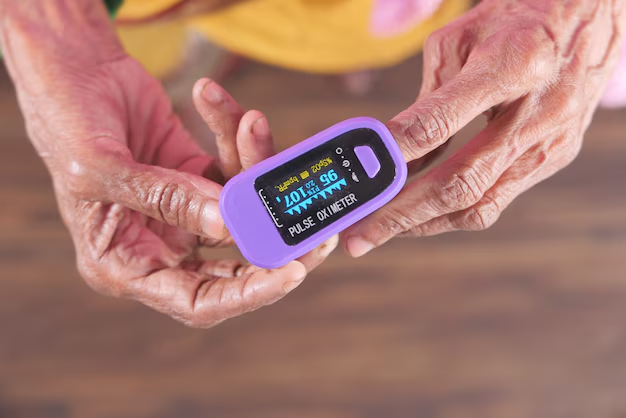Your Guide to How Much Does Medicare Pay For Dexcom G6
What You Get:
Free Guide
Free, helpful information about Medicare Insurance and related How Much Does Medicare Pay For Dexcom G6 topics.
Helpful Information
Get clear and easy-to-understand details about How Much Does Medicare Pay For Dexcom G6 topics and resources.
Personalized Offers
Answer a few optional questions to receive offers or information related to Medicare Insurance. The survey is optional and not required to access your free guide.
Navigating Medicare Coverage for the Dexcom G6 Continuous Glucose Monitor
Managing diabetes effectively often requires the right tools, and for many, the Dexcom G6 Continuous Glucose Monitor (CGM) is an essential device. But if you're considering using CGM technology, you might wonder, "How much will Medicare pay for the Dexcom G6?" Let's explore that essential question and offer insights into potential financial assistance options.
Understanding Medicare Coverage
Medicare is a vital resource for many U.S. seniors and people with disabilities, covering various medical needs. As of 2023, Medicare Part B covers the Dexcom G6 for individuals diagnosed with diabetes who meet specific criteria. This coverage includes both the receiver (or app) and the disposable sensors and transmitters. Typically, Medicare beneficiaries pay 20% of the Medicare-approved amount for the device, while Medicare covers the remaining 80%, contingent on the Part B deductible being met.
Criteria for Coverage
Medicare provides coverage for CGMs like the Dexcom G6 if you:
- Have diabetes,
- Use insulin therapy,
- Require frequent adjustments to your insulin regimen, and
- Regularly test your blood sugar.
Your healthcare provider will need to document the necessity of CGM usage. Meeting these criteria is crucial to securing Medicare help.
Exploring Additional Financial Assistance
Costs can still be significant, even with Medicare's 80% coverage. Fortunately, there are financial aid programs and solutions that can assist in alleviating these expenses for those in need.
Medicaid and Dual Eligibility
Medicaid, a state and federal program, offers health coverage for people with low income. Many who are dual-eligible for both Medicare and Medicaid can benefit from enhanced assistance, reducing out-of-pocket expenses even further. Each state administers its Medicaid program, so benefits may vary based on location.
State Pharmaceutical Assistance Programs (SPAPs)
SPAPs can offer financial support specifically for medications and devices necessary for managing chronic conditions like diabetes. Qualifying for these programs may depend on income and medical necessity criteria set by your state.
Manufacturer Discount Programs
Dexcom sometimes provides discount programs and financial aid options for qualified individuals. These programs help lower the effective cost of purchasing Dexcom CGMs, especially for those who may find the costs prohibitive even after Medicare coverage.
Making the Most of Financial Resources
If the expenses associated with managing your health seem overwhelming, exploring broader financial resources may offer relief. Here are some considerations to help guide you:
Debt Relief Options: Financial stress can amplify health-related challenges. Consider debt relief solutions to better manage your overall financial health, enabling you to focus on medical needs.
Credit Card Solutions: Using credit cards with special financing for health expenses can provide temporary financial relief. Look for cards that offer 0% interest periods specifically for healthcare expenses.
Educational Grants: For those seeking to improve their financial literacy in managing healthcare expenses, educational grants can provide access to courses and tools that build budgeting and financial management skills.
Final Considerations
Navigating the intricacies of Medicare and additional financial aid options can feel daunting, yet understanding these pathways is vital for maintaining access to essential medical devices like the Dexcom G6. With the right information and resources, managing your diabetes with the help of Medicare becomes much more accessible, allowing you to focus on what truly matters—your health and well-being.
Financial Assistance Resources 💡
- Medicaid and Dual Eligibility: Check with your state for specific benefits.
- State Pharmaceutical Assistance Programs (SPAPs): Explore qualifications in your state for additional medical aid.
- Dexcom Manufacturer Discounts: Contact Dexcom directly for discounts and aid programs.
- Debt Relief Options: Consider consulting a financial advisor to explore available debt solutions.
- Credit Card Solutions: Utilize cards offering medical expense financing.
- Educational Grants: Search for grants that provide financial education and management training.
What You Get:
Free Medicare Insurance Guide
Free, helpful information about How Much Does Medicare Pay For Dexcom G6 and related resources.

Helpful Information
Get clear, easy-to-understand details about How Much Does Medicare Pay For Dexcom G6 topics.

Optional Personalized Offers
Answer a few optional questions to see offers or information related to Medicare Insurance. Participation is not required to get your free guide.


Discover More
- Am I Elgible For Medicare
- Am I Enrolled In Medicare
- Am I Qualified For Medicare
- Are Adult Diapers Covered By Medicare
- Are Chemotherapy Drugs Covered By Medicare Part d
- Are Colonoscopies Covered By Medicare
- Are Covid Tests Covered By Medicare
- Are Cpap Machines Covered By Medicare
- Are Cpap Supplies Covered By Medicare
- Are Dental Implants Covered By Medicare
